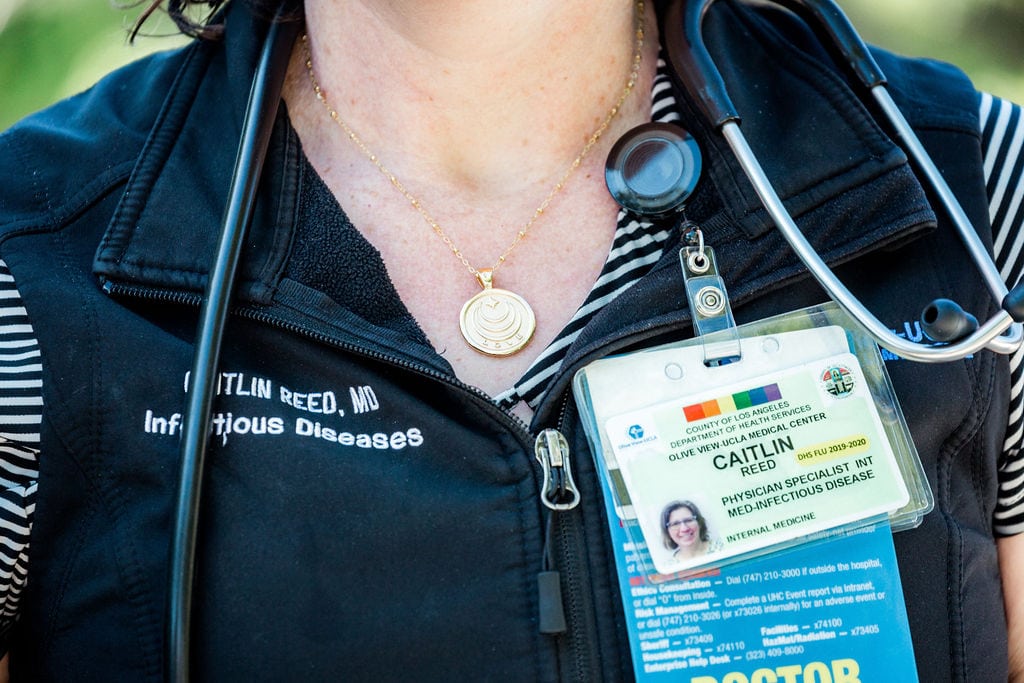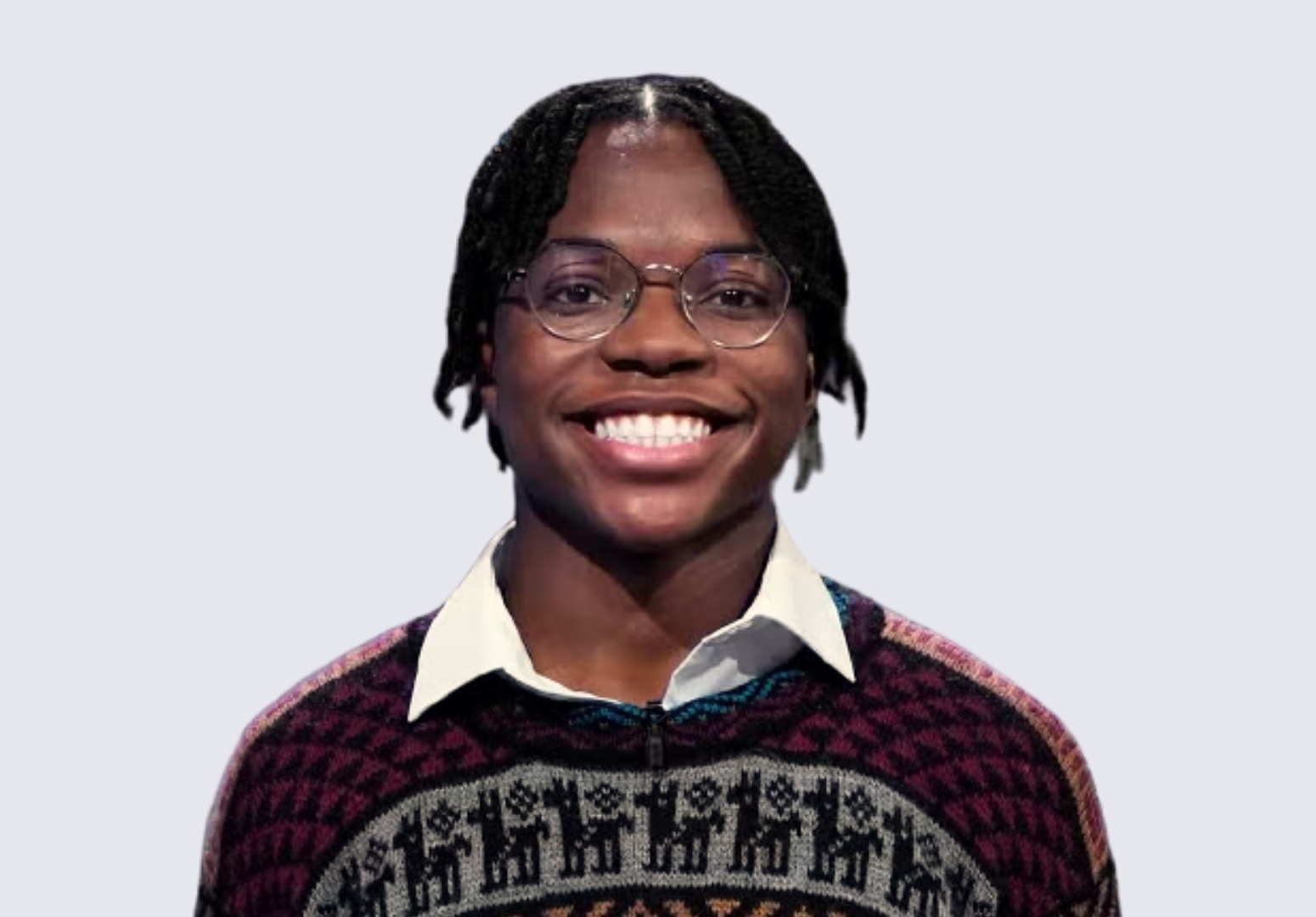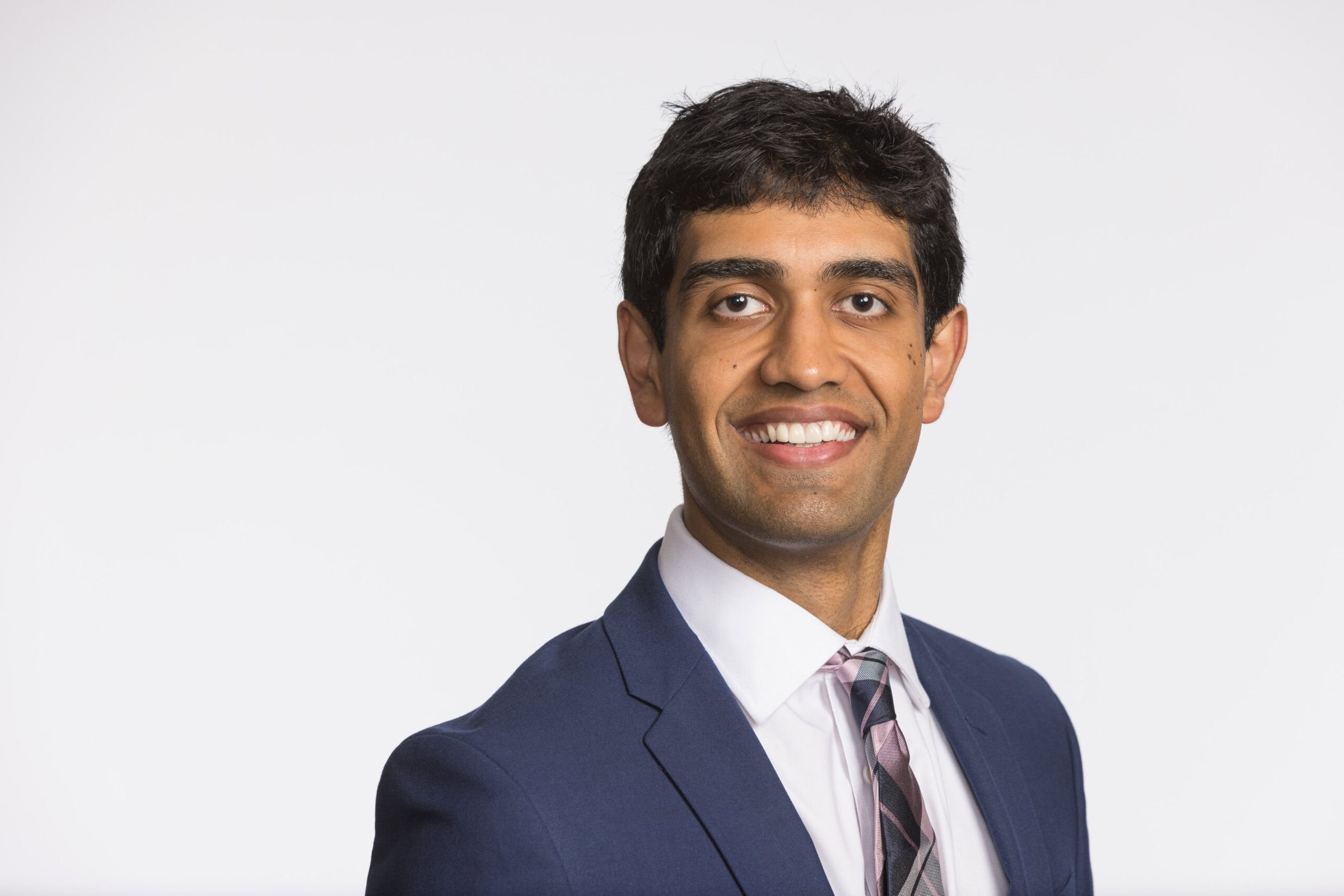
Caitlin Reed ’95 is an infectious disease specialist at Olive View-UCLA Medical Center. Photo by Diana Feil Photography.
Written by Sarah O’Carroll, Morehead-Cain Foundation
As an infectious disease specialist in Los Angeles, Caitlin Reed ’95 is on the front lines of the expanding COVID-19 pandemic.
Before heading to her next shift at Olive View-UCLA Medical Center, she spoke with the Foundation about how the Center is preparing for a wave of coronavirus cases. The number of confirmed COVID-19 cases in California surpassed 2,200 this week, with more than 650 in Los Angeles County alone.
Caitlin described an urgent need to accelerate lab results from the current turnaround time of four to five days. Speeding this up would, among other benefits, reduce use of personal protective equipment by medical workers during waiting periods.
“We’re bringing on-site molecular tests, but it will be a couple of weeks before we’re able to get the equipment up and running,” she said, explaining that all equipment must be validated and verified before being put in use. “Faster test turnarounds will really improve our ability to understand what’s going on and help us conserve our precious supply of masks, gowns, and other supplies.”
Caitlin is the medical director of the Inpatient Tuberculosis Unit at the center. She said all tuberculosis patients are either being discharged to outpatient clinics or relocated within the hospital to make room for what she called a predicted “surge” of new coronavirus cases.
“This unit was originally built for bioterrorism and other kinds of infectious disease incidents, but now it’s being transitioned into an all-coronavirus isolation unit,” she said. “We’re switching to telephone visits and building tents in front of the hospital to triage [patients]; this is a disaster situation.”
Caitlin said a sense of affirmation for the work she’s dedicated her life to eases at least somewhat the anxiety about both the short- and long-term effects of the pandemic on the country’s healthcare system and economy, and about routine patient care that simply won’t be possible.
“I’ve prepared my whole career for something like this,” said the epidemiologist. “This is a scary time, but it’s also an exciting time to be working and collaborating in solidarity with public health colleagues all over the nation, all over the world.”
Caitlin urged those who are healthy to do everything they can to minimize their contact with the public.
“Please, stay at home, and do whatever you can to flatten the curve,” she said. “Support your healthcare workers, and please advocate for the government to do everything possible to increase the supply of protective gear for doctors and nurses, because we don’t have enough.”
Caitlin is also an associate clinical professor of infectious diseases at UCLA’s David Geffen School of Medicine. She graduated from Carolina with a degree in biology.


